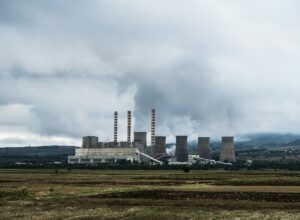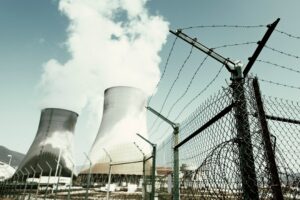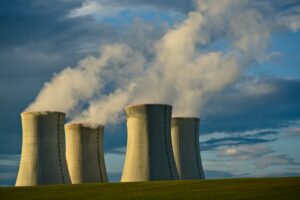As global awareness of the urgent need to combat climate change and reduce carbon emissions increases exponentially, the search for clean and sustainable energy sources has taken center stage. Among the various alternatives available, nuclear energy stands out as a reliable, efficient, and low-emission power source uniquely positioned to play a significant role in reducing the global carbon footprint.
In this in-depth article, we will examine the critical contribution nuclear energy can make in mitigating climate change and securing a sustainable future for generations to come.
Under the expert guidance of William Sheriff, founder and Executive Chairman of enCore Uranium, we will explore not only the unique characteristics and benefits of nuclear energy in reducing carbon emissions but also delve into enCore Uranium’s unwavering commitment to promoting cleaner, domestic nuclear power production.
1. Nuclear Energy and Its Low Carbon Footprint
Nuclear energy is unique in its ability to provide a consistent, reliable power source while generating a minimal amount of greenhouse gas emissions. To appreciate the environmental advantages of nuclear energy, it’s important to understand how these low-emission characteristics come about:
- Fuel Efficiency: Nuclear reactors produce large amounts of energy from small quantities of fuel, resulting in a significantly lower carbon footprint compared to traditional fossil fuel power generators.
- Lifecycle Emissions: When considering the entire lifecycle of a nuclear power plant, including construction, operation, and decommissioning, nuclear energy still boasts lower greenhouse gas emissions per unit of energy generated compared to coal and natural gas power plants.
- Waste Management: Although nuclear power indeed generates radioactive waste, it predominantly contributes to a smaller environmental footprint due to advanced waste management practices and disposal methods, including deep geological repositories.
2. The Role of Nuclear Energy in Reducing Dependence on Fossil Fuels
Transitioning to clean energy is a critical step in mitigating climate change, and nuclear power can play a significant role in this transition:
- Energy Diversity: Integrating nuclear energy into the energy mix provides a cleaner and more reliable alternative to fossil fuels, reducing our dependence on these high-emission power sources.
- Base Load Power Supply: Nuclear power plants can provide a continuous, uninterrupted base load power supply, ensuring grid stability and reliability as we transition from fossil fuels to cleaner energy sources.
- Supporting Renewable Energy Growth: By providing a stable power supply, nuclear energy can complement the intermittent nature of renewable energy sources, such as wind and solar, allowing for a more balanced and diverse energy grid.
3. Nuclear Innovation: Advancements in Reactor Design and Efficiency
The nuclear industry has seen significant advancements in reactor design and efficiency, which contribute to an overall reduction in greenhouse gas emissions:
- Generation III and III+ Reactors: These advanced reactors are designed with improved thermal efficiency, enhanced safety features, lower waste production, and an extended operational lifespan, all of which contribute to a more sustainable, low-emission energy source.
- Small Modular Reactors (SMRs): As discussed in a previous article, SMRs provide an innovative, scalable, and low-emission option for nuclear power generation, particularly in remote communities and off-grid locations.
- Advanced Fuel Cycles: Research and development efforts are underway to develop more efficient and sustainable nuclear fuel cycles, aiming to minimize waste production and extend the usable life of nuclear fuels.
4. Challenges and Opportunities for Nuclear Energy in the Carbon Reduction Effort
While nuclear energy holds immense potential for reducing carbon emissions and promoting global sustainability, there are several challenges and opportunities to consider:
- Public Perception and Acceptance: Like any form of power generation, nuclear energy faces concerns about safety, waste management, and cost. Addressing these challenges requires ongoing public engagement, transparency, and commitment to safety improvements.
- Regulatory Environment: Creating a favourable regulatory environment, including efficient licensing processes and support for new reactor technologies, is crucial in promoting the growth and adoption of nuclear energy.
- Investment and Development: Encouraging investment in research, development, and construction of new nuclear facilities is vital in realizing the full potential of nuclear power to reduce carbon emissions.
Final Thoughts
Nuclear energy has a pivotal role to play in mitigating climate change and reducing global carbon emissions. Companies like enCore Uranium, under William Sheriff’s leadership, are committed to promoting cleaner, domestic nuclear power production and fostering a more sustainable future.
By embracing the potential of United States nuclear energy and investing in research, development, and the implementation of more efficient reactor designs, we can harness the power of nuclear technology to create a cleaner and more sustainable energy future. Contact us today to learn more!





